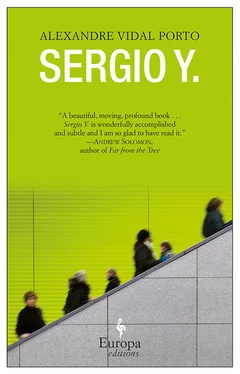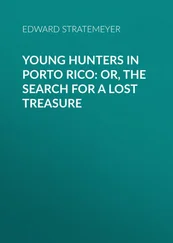Alexandre Vidal Porto
Sergio Y
For Michael B.
What is then between us?
What is the count of the scores or hundreds of years between us?
— WALT WHITMAN, Crossing Brooklyn Ferry
And just as you felt everything, I feel everything,
and here we are holding hands,
Holding hands, Walt, holding hands,
the universe dancing in our souls.
— FERNANDO PESSOA, A Salute to Walt Whitman
ALL YOU NEED KNOW ABOUT ME
For our vanity is such that we hold our own characters immutable and we are slow to acknowledge that they have changed, even for the better.
— E. M. FORSTER
Since I mean to speak of the lives of others, it is only fair that I speak of mine.
My name is Armando. I turned seventy last month. Generally, people think I am older. It has been that way my entire life. I have come to expect it when I meet someone for the first time. I appear older than I am. This visible premature aging is common among psychiatrists. We absorb our patients’ problems. We grow old for them.
I am one of the city’s best doctors. It may sound immodest, I know, to refer to myself in such a manner, but that is how I am referred to when my work is mentioned. I am proud of the recognition I have earned over the years. I am vain, but it does not bother me. I have always thought modesty an overrated quality.
I realize vanity can be a treacherous thing. I think, however, that in my life, it has played a constructive role. My vanity has meant I have rarely found it necessary to diverge from the natural dictates of my will. As a professional, I have opted not to make compromises. I have approached my profession on my terms. Things might not have worked out. But fortunately they did.
My father was also a doctor. When I was a child, I liked to watch him get into his car in the morning to go to the hospital. In my child’s mind, knowing he was a doctor meant my family and I were shielded from pain or death. It gave me a sense of security. When we ran into people who knew him, I was proud of the respect and deference they showed him.
I wanted to be a doctor just like him. I grew up idolizing him. My father died in a stupid traffic accident when he was forty-eight. I had just turned sixteen. After his death, my desire to be a doctor only became stronger and deeper.
And that is what I did.
In 1967, I obtained my degree from the University of São Paulo’s Medical School as a member of its fiftieth graduating class. I was at the top of my class, every year, beginning my freshman year. I did my residency in the United States and returned to Brazil for my PhD. After that, I took the necessary exams and obtained my teaching credentials. I started as an associate professor of medical psychology. I retired as department chair.
In addition to my academic responsibilities, I have always treated a varying number of private patients. Throughout the years I have had good results. I think I have helped some people.
My father, Miguel, was my mother Ondina’s first boyfriend. She was widowed at forty-five and never remarried. When she died, she was a year younger than I am now. From the time she became a widow until I graduated from college, a day did not go by when she did not visit Alba and Yeda, her two sisters, who lived together in an old house in the Moema neighborhood.
At 11:30 A.M. Joel, the driver, would drive her to my aunt’s house on Jauaperi Street. The three women would sit down for lunch. Then they would sit on the couch and watch television. Every day, they would sip their coffees while watching the news and then the featured film for that afternoon, whatever that might be.
Around 4:30 P.M., Maria José, the maid, would serve them more coffee, this time with a slice of cake, cookies or whatever other treats were in the kitchen that day. Sometimes, instead of staying at home, they would go to the mall or to a doctor’s appointment. Joel would drive them, and they would all ride in the backseat together.
When I moved to New York for my residency, my mother temporarily moved in with her sisters. She never moved back. Ondina, Alba and Yeda lived together on Jauaperi Street until they died.
They vanished, one by one, like birds, over a space of ten months. The first to go was Alba, hit by a motorcycle courier while she hailed a taxi in front of the bank where she collected her pension. She died in January. The second to go was my mother, who had been diagnosed with pancreatic cancer at the end of the previous year. She passed away in May. Yeda, the last one to go, suffered a stroke in the middle of the night and never woke up to see August 19th.
I am also a widower. My wife, Heloísa, died nearly seven years ago. After her death, my most palpable feeling was one of relief. It hurt to see her slowly wasting away in the hospital. To shield myself from the pain, about a month before her actual death, in my own mind, I declared her dead. I killed her before she died. But, all along, I was by her side, until her heart finally stopped beating.
I have managed to move on. I lead a normal and satisfactory life. I do not feel alone. But it bothers me to talk about the fact that I am a widower. Not because it moves me or makes me sad. It is just the opposite. I think it should move me more. This is what disturbs me.
My marriage, which lasted thirty-seven years, was a happy one. In the photo on the dresser in the bedroom we shared together, it still is a happy marriage. But now that picture of my wife is enough for me. It suffices.
I may seem cold, even contemptible, but if I lay bare my feelings in this way it is only to show my sincerity and good faith in writing this report.
Heloísa and I had only one child, Mariana, who is now an adult and lives in Chicago. She married an American she met while getting her master’s. I have no grandchildren yet.
Since Mariana left home to study abroad, four years after her mother died, I have lived alone in a four-bedroom apartment on Ceará Street, in Higienópolis in São Paulo, in the same house where the three of us once lived.
With my marital obligations concluded and my parental ones suspended, patients have come to occupy a larger space in my life. Nowadays, I do not know what I would do without them. If all of them were to disappear, wiped out by some plague, let us say, I could probably find things to do. I would not die of boredom. But the truth is I need to define what I will do when the day comes and I have no one left to treat.
The most natural thing would be for me to move to the beach house, which is where most of my books are. However, I know that I will be here for as long as I still have patients in São Paulo, because nothing in life gives me more pleasure. When my mother complained that my father saw too many patients, he answered: “A doctor without a patient is a nobody.” I agree.
It is in my patients that I find the raw material for my life’s major achievements. I care for them as best I can. I get involved in their cases. For each one of them, I read, I reflect, I give of myself. I try to understand what pains them. I ponder it at length. I am meticulous. I take my time in reaching my conclusions.
If I were not careful, my life would be overwhelmed, consumed by the personal problems of others. I would look even older than I do now. To avoid this, I now see only five patients. One a day, Monday through Friday. This allows me to organize my time more efficiently.
I used to take detailed notes of each session. However, ever since I was diagnosed with early arthritis in my right hand, that has changed. Christmas 2003, my daughter gave me a digital recorder, one of those that do not need cassette tapes. From then on, I have only jotted down generic notes while discreetly recording sessions for future reference.
Читать дальше












